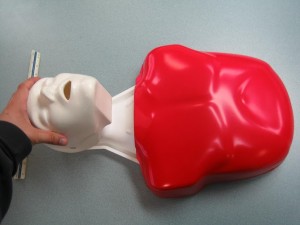Drug abuse occurs when an individual administers one or more drugs into their bodies in a way that is not in accordance with accepted medical or social norms. Drug abuse is a disorder, a health problem, that is characterized by a damaging pattern of use of these drugs, which eventually leads to further substantial problems. The most commonly abused drugs worldwide are marijuana or weed (cannabis), heroin, cocaine, ecstasy and other club drugs, amphetamines, inhalants, anabolic drugs, and even prescribed drugs. Marijuana has produced the most number of offenses in the recent years.
Drug abuse is a serious problem that is affecting millions of people worldwide, including young teens. Some of the main consequences linked with drug abuse are violence, crime and child abuse under the intoxication of these drugs. Despite its plenty of detrimental effects to one’s health and society, a large of amount of people continue to use it and worse, become addicted to it. Although the crime rate in some areas of the world have decreased, drug-related offenses have increased.
Drug abuse is also known as substance abuse or chemical abuse.
Risk Factors of Drug Abuse
Nature and nurture both play a role in increase one’s likelihood of developing drug abuse. Use of drugs usually begins to satisfy one’s curiosity but as in some cases, it leads to abuse and addiction. The following are known factors of increasing risks of drug abuse:
- Mental disorder
- Traumatic childhood experiences, especially those that involve abuse and neglect
- Drug use at an early age
- Family history of drug abuse
- Having close friends or peers who use drugs
It should also be noted that injection or smoking of drugs increases its addictive potential.
Signs and Symptoms of Drug Abuse
The signs and symptoms of drug abuse are either classified as life threatening emergencies or high priority to transfer.
Signs and symptoms of drug abuse that are considered life-threatening emergencies must be given immediate medical attention.
- Unresponsiveness
- Irregular pulse
- Inability to maintain open airway
- Breathing difficulty
- Vomiting that manifests with altered mental status or without gag reflex
- Fever
- Seizure
Signs and symptoms of drug abuse that are considered high priority to transfer must be transferred to the care of the paramedics or medical personnel soonest possible time, although not as serious as life-threatening emergencies.
- Very high or very low blood pressure
- Abdominal pain and bleeding
- Sweating tremors
- Hallucination
- Visual disturbances
- Slurred speech
- Uncoordinated muscle movement
- Loss of memory
- Disinterested behavior
- Paranoia
- Combativeness
- Altered mental status
First Aid Management for Drug Abuse
The following steps are strongly recommended in cases of drug abuse:

- Establish and keep the airway open
- Monitor the mental status and vital signs of the casualty often
- Keep the body temperature in the normal level (approx. 37C)
- Take preventive measures to avoid shock. This will be more difficult to treat.
- Care for any behavioral problem.
- Give support to the casualty.
Learn how to detect signs and symptoms and manage casualties of drug abuse by enrolling in First Aid Courses and CPR Training.
Drug abuse is the self-administration of one or more drugs in a way that is not in accordance with accepted medical or social custom. Drug abuse may become lethal, especially if not given medical or social attention.

